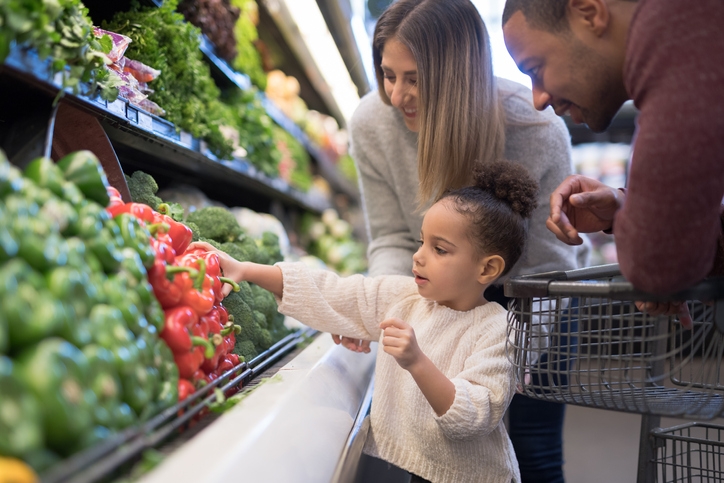Reasons to Buy Organic - and What It Really Means
February 12, 2019 | Food Lion


Reasons to Buy Organic — and What It Really Means
Sales of organic groceries continue to rise, and if you're like a lot of people these days, you might wonder whether it's worth spending the extra money on organic foods. Understanding what buying organic means, why it can be beneficial, and what foods you might consider selecting first can go a long way to helping you decide. This quick guide can explain the organic food movement and empower you to make the decisions that are right for your family.
Organic Foods Defined
At the heart of the organic movement is the desire to minimize environmental damage, promote sustainable farming, and eat a healthy diet. But what's the difference between organic and conventional? The organic label tells you a lot about the way agricultural products are grown and handled before they get to your local Food Lion. Organic means:
- Produce is grown with natural fertilizers instead of synthetic or chemical fertilizers.
- Produce is grown on land where weeds and pests are naturally controlled.
- Livestock are fed an organic, GMO- and hormone-free diet.
- Livestock disease is prevented using natural methods instead of antibiotics.
- Livestock have outdoor access.
Benefits of Buying Organic
Consumer advocates often recommend buying organic because of the impact it can make on your overall health. For one thing, reducing your exposure to pesticides could potentially reduce your risk of developing certain cancers. Additionally, research suggests that organic food is higher in key nutrients, including vitamin C, iron, omega-3 fatty acids, and magnesium. And those aren't the only benefits:
- It's better for the environment: Organic farming aims to reduce pollution, minimize energy consumption, and conserve water, all while boosting soil fertility using natural tools like crop rotations and composting.
- It's a label you can trust: Unlike many of the other labels you might see, the USDA Organic label is among the most closely monitored and heavily regulated in the food industry. Strict third-party inspections make sure organic companies are growing and processing their goods while adhering to strict guidelines.
- It supports animal welfare: Unlike conventional methods, organic farming ensures that animals have access to the outdoors, safe living conditions, and high-quality organic food.
- It provides choice: If you want to live with minimal exposure to artificial colors and flavors, genetic engineering, irradiation, preservatives, and toxic chemicals, choosing organic provides a viable option. With goods ranging from food to clothing to soap, there's really something to meet all your needs.
- It keeps water cleaner: Traditional farming methods that use synthetic chemicals and pesticides can endanger waterways. Surface runoff can lead to those chemicals entering local waterways. Organic methods don't use these chemicals, which helps protect the water.
Organic vs. Local
It's clearer now how buying organic has its upsides. But what about buying food that's grown locally? Here are a few benefits that buying local provides:
- Boost your local economy: More of the money you're spending goes to the farmer instead of transportation, distribution, and marketing. In turn, that keeps more money within your local economy.
- Freshness: On average, the food you buy travels more than 1,500 miles to get to you. Buying local provides the added benefit of produce that's picked when it's ripe and food that's minimally processed. Many organic foods are produced on smaller farms relatively close to where they're sold.
- Local could be organic: Local farmers typically have smaller operations. They may follow organic guidelines but lack the funds to pay for certification. Talk to your local farmer to find out more about their methods.
Organic Affordability
Affordability can be a big question when it comes to buying organic. Thankfully, organic foods are much more affordable these days. Coupons, customer loyalty programs, and private label organics have gone a long way in making organic items a more cost-effective choice. Even so, it's important to note that when you buy organic food, you're supporting organic farmers. In turn, companies see that uptick in organic sales and begin offering increasingly competitive prices.
If you're just getting started, or you're shopping on a budget, you could transition to organics slowly. You might want to start by replacing the items on the Environmental Working Group's list of specific veggies and fruits that are known to have the highest pesticide levels, including:
- Kale and collard greens
- Spinach
- Cherry tomatoes
- Chili peppers
- Bell peppers
- Summer squash
- Cucumbers
- Potatoes
- Grapes
- Apples
- Imported nectarines
- Peaches






Reviews
(
)
Submit a Review
Create Your Display Name